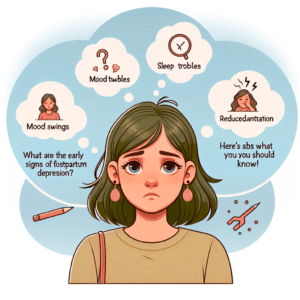Get your free Book Here
First-Time Dads: Your Essential Guide to Supporting Your Partner’s Emotional Well-Being
Becoming a first-time dad is an exhilarating journey filled with love, excitement, and a bit of anxiety. As you prepare to welcome your little one into the world, it’s essential to remember that your partner is undergoing an emotional and physical transformation as well. In this guide, we’ll explore the crucial role you play in supporting your partner’s emotional well-being during pregnancy, childbirth, and the early days of parenthood. Let’s dive into this transformative experience and help you become the rock your partner needs.
1. Understanding the Emotional Landscape
The journey into parenthood is emotional territory for both partners. For mothers, pregnancy can bring a whirlwind of feelings dominated by hormonal changes, physical discomfort, and anxiety about motherhood. As a dad-to-be, it’s vital to understand this emotional landscape. Encourage open dialogues about feelings, fears, and expectations, and remind your partner that it’s perfectly normal to feel multiple emotions at once.
Key Points:
- Hormonal changes can affect mood swings.
- Open dialogues foster emotional safety.
- Validate feelings; it’s okay to struggle.
2. Communication is Key
Communication serves as a powerful tool in any relationship, especially during this significant life change. It’s crucial to practice active listening—making an effort to understand rather than quickly respond. Ask open-ended questions about your partner’s experience and gently guide conversations regarding fears or concerns.
Key Points:
- Practice active listening; it shows you care.
- Use open-ended questions to deepen the conversation.
- Reassure your partner that her feelings are valid.
3. Be Involved in the Pregnancy Journey
Being an active participant in your partner’s pregnancy journey can deepen your connection. Go to doctor appointments together, attend prenatal classes, or read books on parenting together. This involvement not only strengthens your bond but also reassures your partner that you are in this together.
Key Points:
- Attend appointments to show support.
- Share responsibilities for classes and information gathering.
- Be proactive and engaged in preparations.
4. Understanding Her Needs
As the due date approaches, the physical demands on your partner can intensify. She may struggle with fatigue, nausea, or anxiety. Understanding and anticipating her needs is crucial. This may include helping with household chores, offering massages, or simply making her favorite meal. Your support can alleviate her stress tremendously.
Key Points:
- Regularly check in with her needs.
- Lighten her load around the house.
- Small gestures, like taking care of meals, make a difference.
5. Prepare for Postpartum Emotions
Mental and emotional health doesn’t stop with childbirth. Postpartum emotions can vary widely—ranging from the “baby blues” to more serious conditions like postpartum depression. Familiarize yourself with the signs and symptoms and remain vigilant in monitoring your partner’s emotional state after delivery.
Key Points:
- Research postpartum depression and its symptoms.
- Create a supportive environment at home.
- Communicate openly about emotional well-being.
6. The Importance of Self-Care for Both Partners
Navigating parenthood can be demanding, making self-care a priority for both you and your partner. Encourage breaks for both of you, whether it’s enjoying a quiet moment with a book or taking a stroll together. Caring for yourselves is not selfish; it equips you to care better for your family.
Key Points:
- Identify self-care routines that work for both of you.
- Schedule time together and apart to recharge.
- Discuss the importance of balancing care for each other and your child.
7. Building a Support Network
Creating a robust support network can ease the challenges of new parenthood. Connect with other new parents, family members, or friends who can share advice and lend a hand. Joining community groups can also help you and your partner feel less isolated and provide outlets for shared experiences.
Key Points:
- Don’t hesitate to reach out to your family and friends.
- Explore community parenting groups for connection.
- Share your experiences with others; it helps build empathy.
8. Staying Connected as a Couple
Lastly, as you navigate babyhood, it can be easy to lose sight of your relationship as a couple. Scheduling regular “date nights,” whether they’re at home or out, can maintain your bond. Talk about things other than parenting, rekindling that special connection amidst the chaos of new responsibilities.
Key Points:
- Schedule regular date nights to nurture your relationship.
- Make everyday moments special, even cooking together.
- Maintain open communication about your relationship.
Conclusion
Becoming a first-time dad is an incredible journey that brings joy and growth. Remember that, while you support your partner, it’s equally important to care for yourself. By honing your communication skills, being present throughout the journey, and creating a supportive environment, you’ll not only foster your partner’s emotional well-being but also lay the foundation for a loving, collaborative parenting partnership that enriches the entire family. Embrace this moment; it’s a powerful chapter filled with opportunities for love and connection.
FAQs
Q: How can I support my partner emotionally during pregnancy?
A: Listen actively to her concerns, attend prenatal appointments together, and offer assistance with daily tasks to directly address her needs.
Q: What signs of postpartum depression should I look for?
A: Watch for persistent sadness, high anxiety, excessive crying, and withdrawal from activities or loved ones. Encourage your partner to seek help if you notice these signs.
Q: How often should we communicate about feelings during this transition?
A: Make it a regular practice to discuss feelings openly, ideally daily or weekly, but be receptive to spontaneous conversations as well.
Q: What if I feel overwhelmed myself?
A: Recognize that feelings of overwhelm are normal. Talk to your partner about your feelings, or seek help from friends, family, or professionals.
Q: How can we maintain our relationship amidst parenting responsibilities?
A: Schedule regular date nights and dedicate time to just enjoy each other’s company without distractions.
Q: Is it selfish to take time for myself?
A: Not at all! Self-care is crucial for both partners. Taking time for yourself allows you to recharge, which ultimately benefits your partner and child.
Q: What are some quick self-care ideas for both of us?
A: Go for walks together, enjoy a quiet coffee break, or practice relaxation exercises like deep breathing or meditating.
Q: How can we create a support network?
A: Reach out to friends, family, and join local parenting groups or online forums. Sharing experiences and resources with others can enhance your journey.
Q: Can we be prepared for everything in parenthood?
A: While it’s impossible to prepare for every situation, being aware of common challenges and communicating openly can help you navigate them as a team.
Q: Why is it essential to learn about postpartum mental health?
A: Knowledge equips you to recognize symptoms and provide necessary support to your partner, ensuring that she feels understood and valued during a critical time.
Q: How can I encourage my partner when she feels down?
A: Listen compassionately, reassure her about her feelings, and engage in uplifting activities together to boost her mood.
Instantly Access Your Free Children’s Books Here! (https://payhip.com/BlueCherryStore) – Disclaimer: I may earn a commission from qualifying purchases as an affiliate. Please note that I only recommend products I believe will provide value to my readers.(M)







